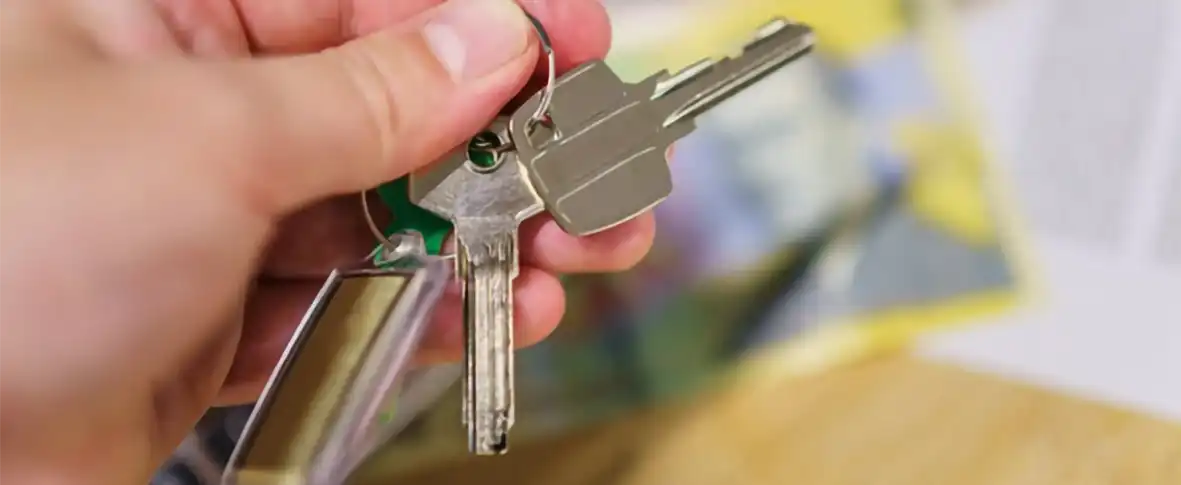
As you might imagine, an unpaid property tax debt does survive a transfer by quitclaim.
Transferring ownership to a family member, to a company, or to any other party can be done even with a tax balance attached to the property. The transfer will not remove a tax lien. The lien runs with the title until someone pays it off, and the tax authority files a lien release.
So, if a home has a lien for overdue back taxes, what happens next? Let’s take a look.
Governments Put Claims on Home Titles for Unpaid Taxes?
Yes! Always keep up with taxes and other home-related bills. This is especially important for people to remember after paying off mortgages. When there’s a mortgage, the company normally pays a home’s taxes out of the borrower’s escrow account so the borrower doesn’t forget.
If an owner does neglect the taxes, and a lien does attach to a property, what’s the effect?
- If a deed holder transfers a property interest to someone else without resolving the lien, then the new owner gets the tax debt.
- If the taxes remain unpaid, the local government can use its lien to sell the property and recover the debt.
In short, a tax lien survives a deed transfer. And the lien can be enforced through a seizure and tax sale.
If you’d like to see the steps an investor takes to bid in a real estate tax sale, review this outline of Philadelphia’s real estate tax auction process.
What Is a Tax Sale?
If a homeowner has not paid property taxes, even after a past-due notice, the taxpayer becomes delinquent and is hit with penalties. Eventually a judge issues a tax lien for the unpaid sum. The title holder or heirs then get a deadline for settling the lien. If there’s no settlement, the local tax collector may notify the debtor that the home will be put up for sale. The county relies on the tax lien to set up an auction.
Under a state’s law, it’s possible that the debtor could still pay off the taxes, fees, and interest and redeem the title. Otherwise, potential buyers could be invited to bid on it. A tax deed sale offers investors a way to bid on properties, fix and flip them, or acquire them as rental properties. But the investors have to be ready with funds for the minimum bid (in the five figures), and a minimum down payment (for example, 10%).
The sale typically ends with the successful bidder resolving the tax debt for good. But a completed tax sale also means the debtor loses the home.
If the sale proceeds are bigger than the past-due tax bill, what happens to the overage? Generally, the debtor receives the remaining home equity back. Any unpaid mortgage debt must be satisfied before the debtor may keep any funds.
What Happens to the Deed After a Tax Deed Sale?
In many states, the successful bidder at a tax sale resolves the lien and gets a tax deed in return. The government is satisfied. The debtor now owes the bidder.
The debtor must repay what the bidder offered, plus any charge set by law. Otherwise, the sheriff’s office can have the home’s residents evicted. The bottom line? The bidder receives the property if the debtor cannot cover the bid. But watch out, bidder! A state could give debtors months to redeem the title.
Paying somebody’s property taxes to take the deed is no easy feat — nor should it be.
Tax sale bidders typically connect with title insurers in advance. An investor might occasionally resort to a quiet title action in court to rid a property of other claims, but many hire title clearing services.
What About the States That Don’t Allow Tax Deed Sales?

States may use an alternative method to recover unpaid taxes short of deed sales. They could use tax lien certificates. Lien certificates offer investors less expensive entry points to claim interests in real estate. These are popular forms of investing for large, institutional investors.
Tax lien certificate sales don’t auction off homes. They just auction off lien certificates after bidders pay off the taxes. So, the successful bidder receives a tax lien certificate in the mail if the debtor can’t resolve the debt first. And the tax collector is satisfied, because an investor paid the taxes.
But the investor doesn’t get the title. Instead, the investor’s lien clouds the title. So the homeowner can’t sell or borrow against the home before resolving the debt with the investor.
Meanwhile, the investor gets income: interest on the debt, at a locally established interest rate.
Eventually, if the time to repay winds down and the tax debt goes unresolved, the investor can use the lien to foreclose, and fully pay their purchase bid. Only then can an investor obtain the property. The process is thorny enough that many investors hire tax lien firms to get through it.
Why Should Someone Who Receives a Deed Be Stuck With a Prior Owner’s Tax Debt?
The question itself highlights the importance of caution when taking a quitclaim. People on either end of a quitclaim must understand this. Because there’s no title search involved with a quitclaim, the recipient could become a bag holder for unresolved liens. Words to the wise:
- Consult with an attorney before accepting and recording a deed to quitclaimed property.
- If you want your title to be insured, request a warranty deed so the deed is cleared through a title company.
Remember, a quitclaim doesn’t promise a clear title. The recipient would indeed be holding the bag on a prior tax lien.
Sometimes, the party that filed a lien against a property’s title will allow for a settlement. But the local government has no obligation to release the next deed holder from a prior tax debt that’s still attached to the title. Therefore, paying off a former deed holder’s debt in full could be necessary.
Not sure that the lien against a title is valid? Consult a real estate or tax lawyer for assistance.
Can I Buy an Abandoned Home, Cover the Back Taxes, and Acquire the Deed?
Tread with caution here. There could be other liens on the property.
The first thing to do is a search for the name of the owner on record. The owner might be interested in selling. But acquiring the deed isn’t possible simply by resolving the overdue debts.
If the owner of record wishes to transfer the property to you, request a general warranty deed. Have a title search done.
In this situation, hiring a local real estate lawyer is an excellent idea. An inspection for toxins, hazardous materials, or unpermitted work would also make good sense.
There are quite a few risks to acquiring a home this way. They can be very costly to insure.
Can Deed Holders Challenge a Property Tax Lien?
Governments generally do not negotiate over valid liens for property taxes.
Property taxes are charged based on the local tax assessor’s valuation of the home. So, you might be able to challenge the assessed value of the property in order to pay less. Speak with the tax authority to learn what procedures are in place.
Filing for bankruptcy can help with back taxes, but once there’s a lien, it’s too late for that. A bankruptcy filing will not erase a tax lien.
Are Tax Auctions Good Investment Options?
To explore, start with the state law on tax deed sales or lien certificate auctions. Then check the county-level websites for tax assessors’ auction registration pages. Counties also provide information on auction schedules and bidding rules.
Be aware that large investment firms have a great deal of control over the most lucrative real estate tax investments.
As usual, we add one more important message. This column is not legal or tax advice. Tax liens are complicated. A real estate attorney can provide guidance that fits your own facts.
Supporting References
Deeds.com:Can I Get the Deed to a Property by Paying Someone Else’s Unpaid Taxes? (Jan 24, 2025).
Deeds.com:Tax Deed Sales: Buying Homes by Paying Other People’s Taxes (May 14, 2021).
And as linked.
More on topics: Surplus retention seizures (by governments), Tax liens and scams, Supreme Court weighs in on home equity theft (by governments)
Photo credits: Jakub Zerdzicki and Nataliya Vaitkevich, via Pexels/Canva.
